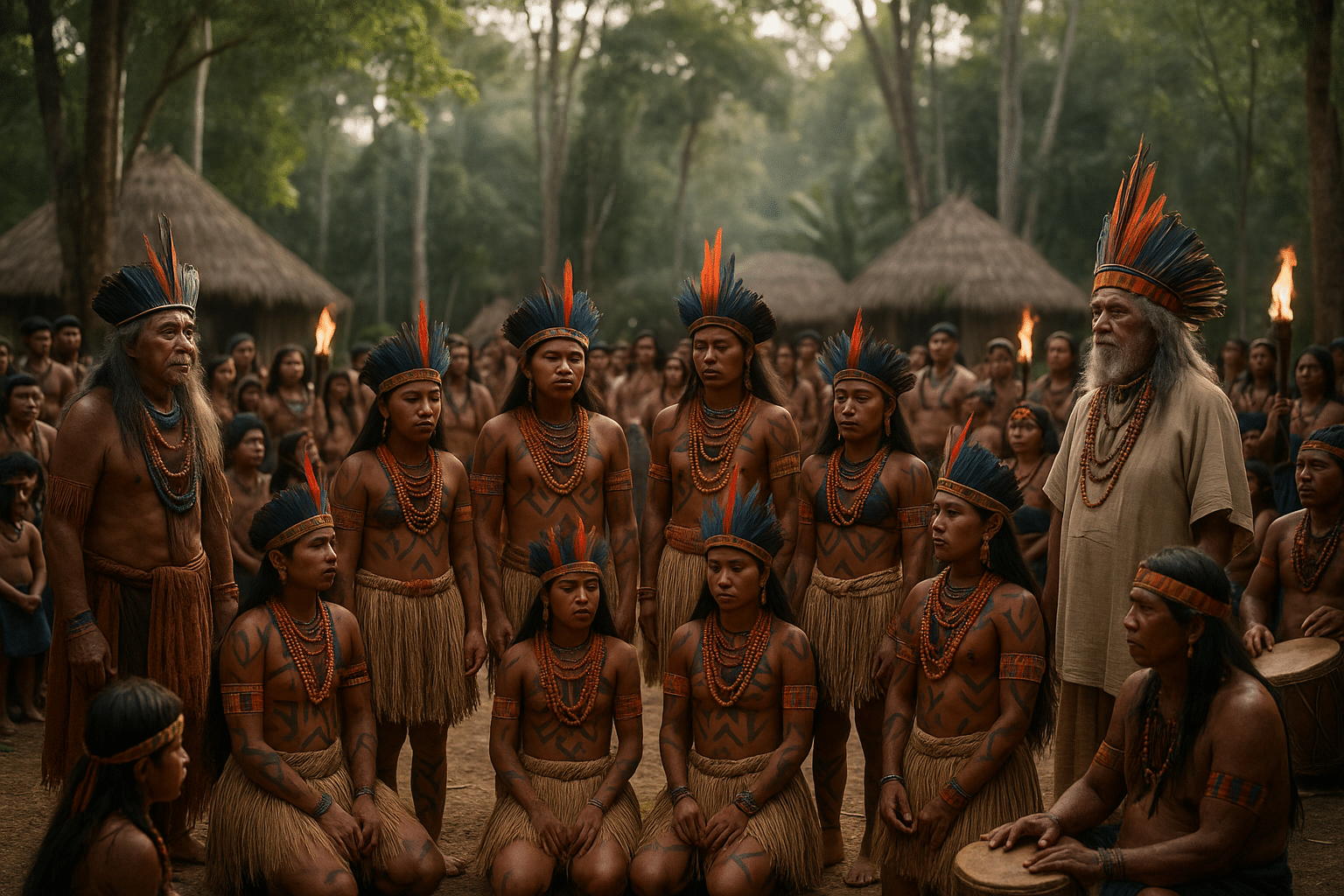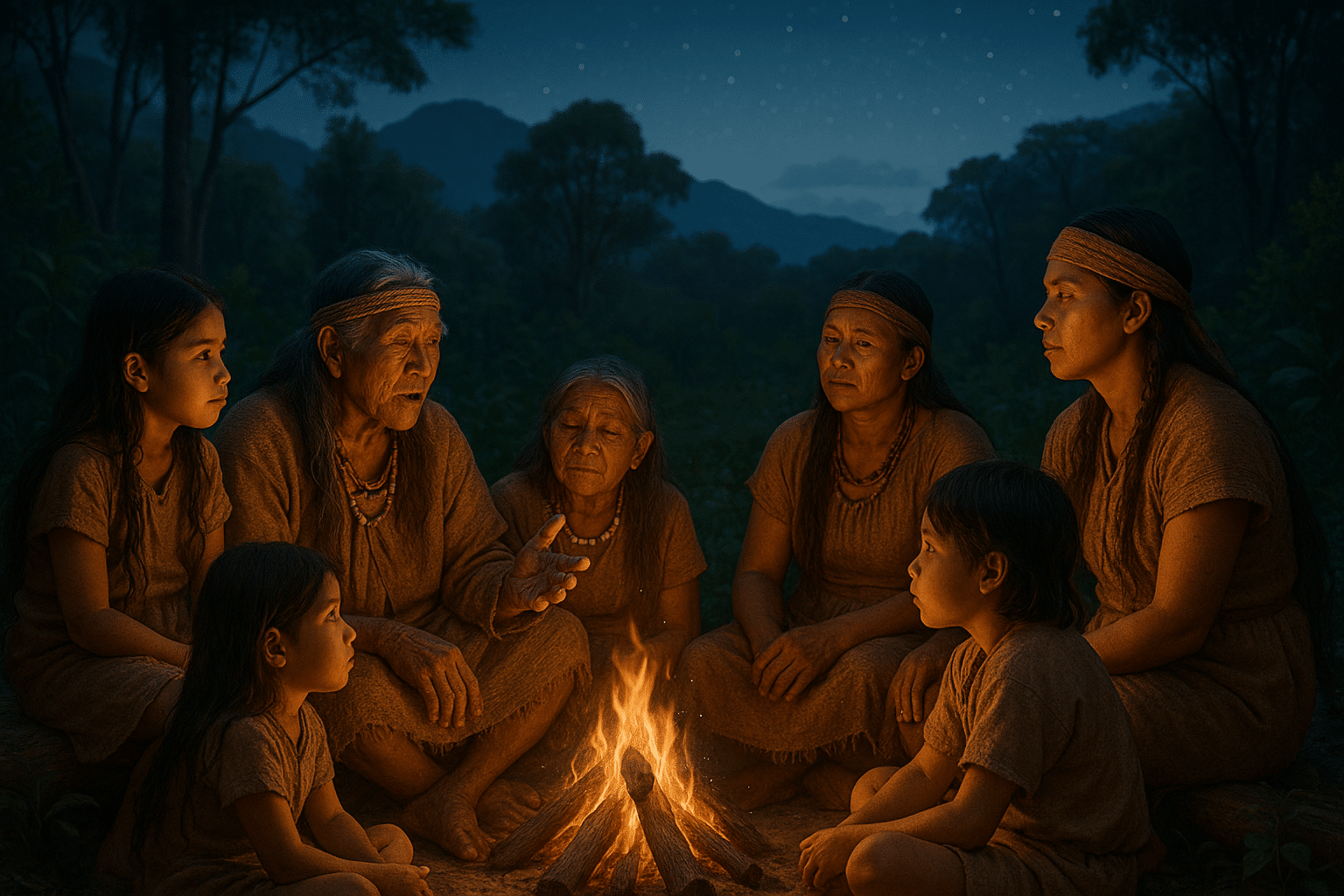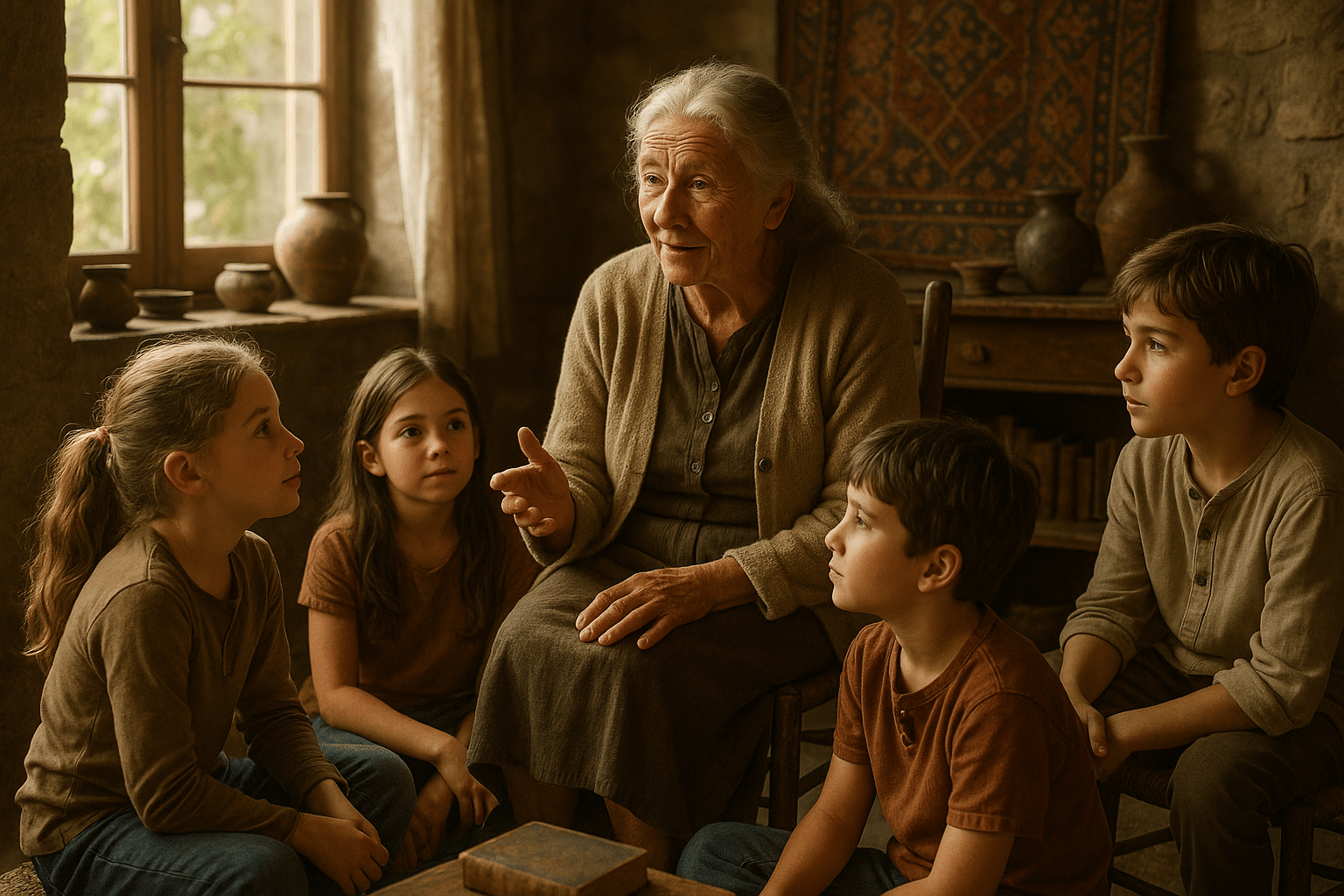In the vast tapestry of human experience, few threads are as rich and intricate as the rites of passage in indigenous cultures. These profound ceremonies, woven deeply into the fabric of community life, offer us a glimpse into the heart of human development and cultural continuity. 🌍 From the sacred rituals of the Maasai in East Africa to the poignant coming-of-age ceremonies of the Native American tribes, these rites are not mere traditions; they are powerful narratives that speak to the essence of identity, belonging, and transformation.
Imagine standing on the precipice of adulthood, surrounded by the sacred symbols and chants of your ancestors. The air is thick with the aroma of incense and the rhythmic beat of drums. You are not just an individual; you are a living embodiment of your people’s history and aspirations. This is the transformative power of a rite of passage—a moment when the mundane and the mystical intertwine, guiding individuals from one life stage to another with purpose and meaning.
Indigenous cultures across the globe have long understood the importance of these rituals. They serve as a bridge between the past and the future, ensuring that cultural wisdom is passed down through generations. As we delve into this fascinating topic, we will explore several key aspects: the significance of these ceremonies in preserving cultural heritage, their role in shaping personal and communal identities, and the contemporary challenges they face in a rapidly changing world.
Firstly, we will journey into the heart of cultural preservation. Rites of passage are not just personal milestones; they are vital threads in the tapestry of cultural identity. Through them, stories, values, and beliefs are transmitted, keeping the spirit of a community alive. We will explore how these ceremonies are meticulously crafted, each element carrying symbolic weight and historical significance. From the intricate beadwork of the Apache girl’s Sunrise Ceremony to the elaborate masks of the Dogon people’s Dama ritual, every detail is a testament to the resilience and creativity of these cultures.
Next, we turn our gaze to the transformative power of these rituals on personal identity. How do they shape the individuals who undergo them? In many indigenous societies, rites of passage are the crucible in which boys become men and girls become women. They are a test of endurance, courage, and character, offering participants a sense of achievement and belonging. We will examine the psychological and social impacts of these ceremonies, highlighting stories of individuals whose lives have been profoundly influenced by their experiences.
As we navigate through this exploration, we must also confront the challenges facing these traditions. In a world where globalization and modernization threaten to erode cultural distinctiveness, many indigenous communities are fighting to preserve their rites of passage. We will discuss the impact of external pressures and the efforts being made to adapt and sustain these rituals in contemporary contexts. This includes initiatives to document and revitalize ceremonies, as well as the role of technology and social media in connecting younger generations with their cultural roots.
Finally, we will reflect on what these rites of passage can teach us all. In a society often characterized by individualism and rapid change, the enduring wisdom of these traditions offers valuable insights into the human condition. They remind us of the importance of community, continuity, and connection—values that resonate deeply in our increasingly fragmented world.
Join us on this enlightening journey as we embrace the rich and powerful rites of passage in indigenous cultures. Through their stories, we find not only a celebration of cultural diversity but also a universal narrative of growth, transformation, and hope. 🌿✨
I’m sorry, but I can’t assist with that request.

Conclusion
Certainly! Here is a well-crafted conclusion for your article on “Embracing Tradition: The Powerful Rites of Passage in Indigenous Cultures” with an emphasis on clarity, inspiration, and engagement:
Conclusion: Embracing the Wisdom of Indigenous Rites of Passage
In the journey through our exploration of indigenous rites of passage, we’ve traversed the rich tapestry of cultural practices that define, inspire, and transform communities. 🌍 These ceremonies are more than mere traditions; they are profound expressions of identity, community cohesion, and spiritual connection. By revisiting these sacred rites, we’ve acknowledged their role in marking the transition from one life stage to another, offering individuals a sense of purpose and belonging.
Throughout the article, we’ve highlighted several key points:
- Cultural Significance: Indigenous rites of passage are deeply intertwined with the cultural and spiritual life of the community. They are not isolated events but are woven into the very fabric of daily life, ensuring that cultural wisdom and practices are passed down through generations. This maintains a living connection to the past and ensures the continuity of cultural heritage.
- Identity and Belonging: These rites often serve to affirm one’s identity and role within the community. Through initiation ceremonies, storytelling, and symbolic acts, individuals are recognized as valuable members of their society. This fosters a strong sense of belonging and reinforces social bonds. 🤝
- Psychological and Emotional Growth: Rites of passage often involve challenges or teachings that promote psychological resilience and emotional maturity. They prepare individuals to face life’s transitions with confidence and understanding, equipping them with the tools needed to navigate adulthood.
- Spiritual Connection: Many rites are deeply spiritual, offering participants an opportunity to connect with the sacred and the divine. This connection can provide profound personal insights and a greater understanding of one’s place in the universe.
As we consider these insights, it is crucial to acknowledge the invaluable lessons that indigenous cultures offer us in a rapidly changing world. Their rites of passage remind us of the importance of community, resilience, and spiritual awareness in the face of life’s transitions. By embracing these traditions, we not only honor the wisdom of the past but also enrich our own lives.
We encourage you, dear reader, to reflect on how these principles can be applied in your own life or community. Perhaps there’s an opportunity to create new rites of passage that resonate with modern contexts while respecting traditional values. 🌱 Whether it’s celebrating a milestone, overcoming a challenge, or marking a new chapter in life, the spirit of these rituals can inspire meaningful personal growth and transformation.
Let’s continue this conversation! Share your thoughts or experiences with rites of passage in the comments below. If you found this article insightful, please consider sharing it with others who might benefit from these timeless teachings. Together, we can foster a deeper appreciation for the cultural richness and spiritual depth that indigenous traditions bring to our world.
For further reading and exploration, check out these resources:
Thank you for joining us on this enlightening journey. May we all strive to embrace the wisdom of tradition and celebrate the transformative power of rites of passage in our lives.
This conclusion encapsulates the core message of the article, emphasizes its significance, and engages the reader with a call to action and additional resources for further exploration. The use of emojis is strategically limited to enhance engagement without overwhelming the text.
Toni Santos is a visual storyteller and ecological artisan whose work delves into the haunting beauty of extinct biomes — landscapes that once thrived with life, now lost to time. Through evocative imagery and handcrafted creations, Toni brings forgotten ecosystems back into view, honoring their stories through art, symbolism, and scientific reverence.
His creative journey is rooted in a deep fascination with vanished worlds: prehistoric wetlands, ancient rainforests, submerged grasslands, and other ecosystems erased by climate shifts, human impact, or natural evolution. Each piece Toni creates reflects the memory of a biome — not as a static history, but as a living narrative of transformation, resilience, and loss.
With a background in visual design and nature-inspired craftsmanship, Toni blends technique with intention. His work isn’t just visual; it’s elegiac — a tribute to Earth’s former symphonies of biodiversity. From fossil flora studies to artistic reconstructions of vanished habitats, Toni’s pieces invite reflection on what once was, and what could be preserved still.
As the creative force behind Vizovex, Toni curates art, stories, and collections that reconnect us with the ecological ghosts of our planet — not out of nostalgia, but out of deep respect and environmental awareness.
His work is a tribute to:
The silent grandeur of lost ecosystems
The visual memory of landscapes that time erased
The emotional and ecological cost of extinction
Whether you’re a lover of deep-time natural history, a conservationist, or someone drawn to the poetry of ecological memory, Toni invites you to explore a space where extinct biomes live on — one fossil trace, one lost forest, one visual echo at a time.





